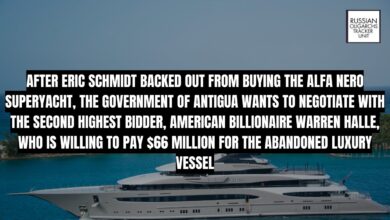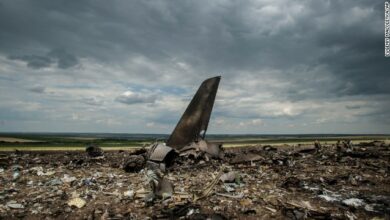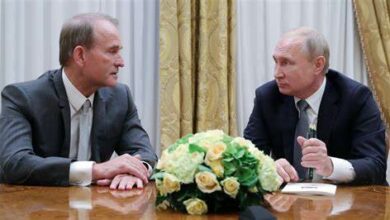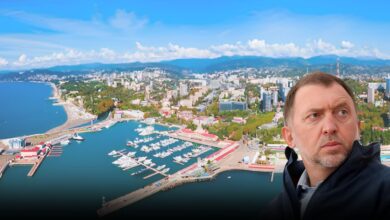Russia’s Foreign Minister Navigates Rising Anti-Western Sentiment During North Africa Diplomatic Tour
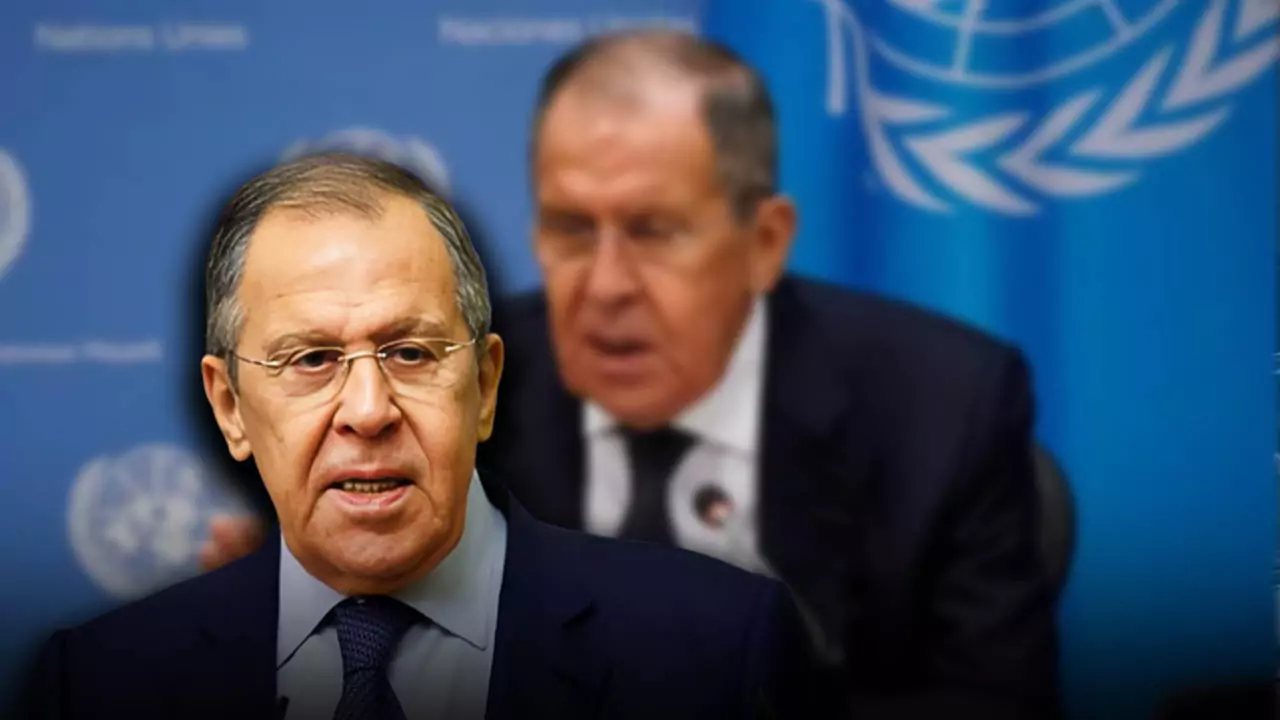
Large green billboards promoting Russia Today, a media outlet supported by the Kremlin, have recently been erected not far from the location where Russia’s foreign minister is meeting on Thursday in Tunisia.
The advertisements serve as yet another proof that Russia is extending its influence in North Africa at a time when support for Western nations is waning in the Arab world due to the Israel-Hamas conflict in Gaza.
North African nations have long had close, if complex, ties to the European Union due to their extensive trade connections and sizable diaspora populations in Western Europe.
The United States and Morocco, Algeria, and Tunisia have close ties as well.
However, since October, protests against Israel’s most recent war with Hamas have erupted throughout the region. In Tunis, for example, protesters have staged demonstrations in front of US and French embassies, shouting for a free Palestine.
According to data released last week by the nonpartisan research group Arab Barometer, the popularity of the US declined by thirty percentage points in the weeks following the start of the Israel-Hamas conflict. The reputation of France was also damaged.
Even in a matter of years, Tunisians’ perspectives on the world changed in ways that are uncommon. Based on 2,406 interviews, the Arab Barometer researchers came to the conclusion that there is no other issue in the Arab world about which people feel so individually and emotionally connected.
Moscow has increased its efforts to promote its narrative about issues like Gaza and Ukraine and to fortify its ties to North Africa in the void left by the declining popularity of Western powers. Leaders of North Africa are receiving visits from Russian officials, who are also negotiating new trade deals and signing memoranda of understanding covering everything from Syria to Ukraine.
Sergey Lavrov, the Russian Foreign Minister, made a reference to the United States during this week’s Arab-Russian Cooperation Forum in Marrakech. He stated, “It has become obvious that some external forces are not averse to using the next escalation of the Palestinian-Israeli conflict in their own interest, to ignite the fire of a regional war.”
The first stop on Lavrov’s tour of North Africa was Marrakech. He traveled to Tunisia on Wednesday night in order to meet with President Kais Saied and the foreign minister of Tunisia, who had visited Moscow in September to announce a new grain agreement between the two nations.
Russia’s Foreign Minister: Expands North African Ties

Over half of Tunisia’s wheat imports came from Ukraine prior to Russia’s invasion.
Lavrov announced fresh initiatives to increase energy and agricultural trade with North Africa, even as he bemoaned the pressure from nations that seek to isolate Russia.
Additionally, he made a comparison between US and Russian policies in the Middle East.
He remarked on Thursday, “We feel that our Western colleagues are not very willing to try to create a Palestinian state.”
The Arab-Russian Cooperation Forum this week was planned prior to the outbreak of war, which followed the murder of about 1,200 people in Israel on October 7 by Hamas militants who also kidnapped 240 others. However, its timing gave Lavrov a valuable opportunity to align Russia with Arab nations before a projected UN vote on a resolution backed by the Arab world to deliver humanitarian aid to Gaza.
Hossam Zaki, the assistant secretary general of the Arab League, stated, “We hope that the Security Council can adopt this resolution and that there will not be a veto from a permanent member, notably the United States.”
The forum was established several weeks after Russia Today, formed fresh alliances, and employed reporters to establish a bureau in Algeria.
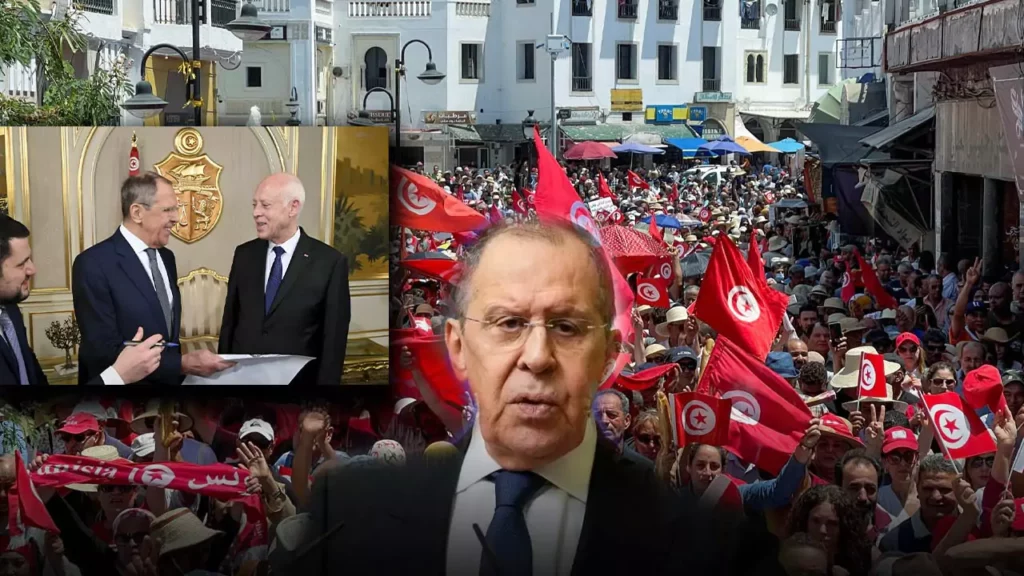
Lavrov met with an accommodating group of people at the forum in Morocco, and the result was a joint statement that was signed on Wednesday endorsing the Palestinian cause. It echoed Moscow’s political strategy by urging the maintenance of Syria’s “sovereignty” and applauding initiatives to “create conditions for a political solution to the crisis” in Ukraine.
Following the signing, Moroccan Foreign Minister Nasser Bourita issued a statement saying, “It is time to take a different approach in dealing with the issues and concerns of the Arab world.” “Russia is a partner in our eyes.”
Russia has historically been less aligned with NATO and the United States than Morocco and Tunisia. However, despite the conflict in Ukraine and Israel’s most recent conflict with Hamas, the nations—along with Algeria—have all made an effort to portray themselves as neutral and to preserve commercial and diplomatic relations with Russia.
In an interview with the International Crisis Group’s War & Peace podcast on Wednesday, Olga Oliker, the program director for Europe and Central Asia, stated, “Moscow is hoping frustration with the United States and European countries will work in its favor elsewhere.”
Russia and Europe have important trade relations with North Africa. Russia is a major supplier of wheat to Tunisia, Algeria, which has one of the biggest militaries in Africa, and Russia is also a major supplier of fuel and fertilizer to Morocco.
Since the beginning of the conflict in Ukraine, Morocco and Algeria have increased the amount of Russian diesel they import while simultaneously trying to take advantage of new energy needs from Europe as the continent weans itself off of Russian gas.
Russia’s stance toward North Africa, according to Ivan Klyszcz, a fellow at Estonia’s International Centre for Defence and Security who studies Russian foreign policy, is consistent with its larger goal to assert its aspirations to be a great power and give its foreign policy a global scope. Furthermore, North Africa’s response to the Israel-Hamas conflict has mainly followed its positions during the conflict in Ukraine.
He stated, “The countries of North Africa have positioned themselves to maximize their relations to the great powers — Russia, the United States, and Europe.”




